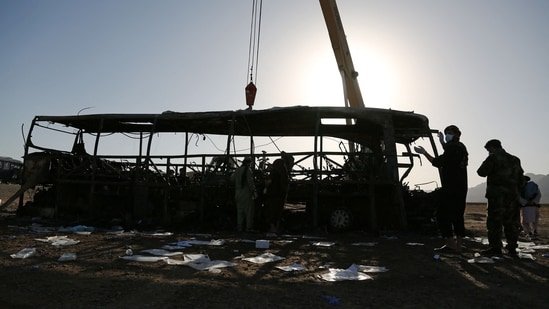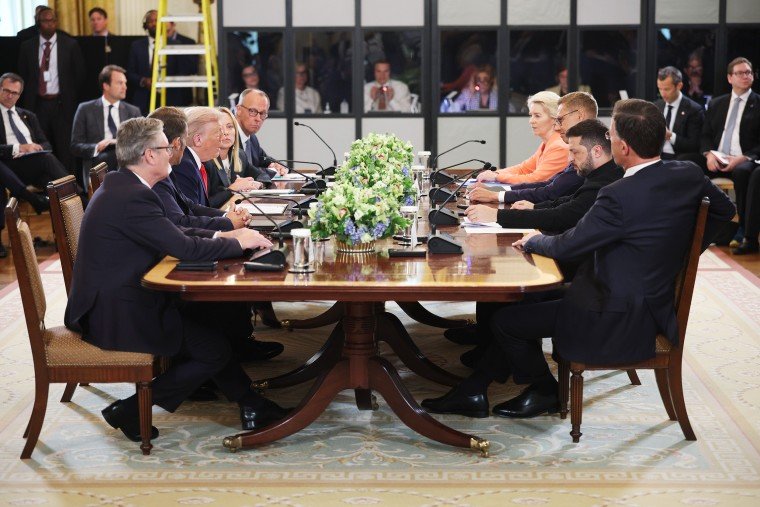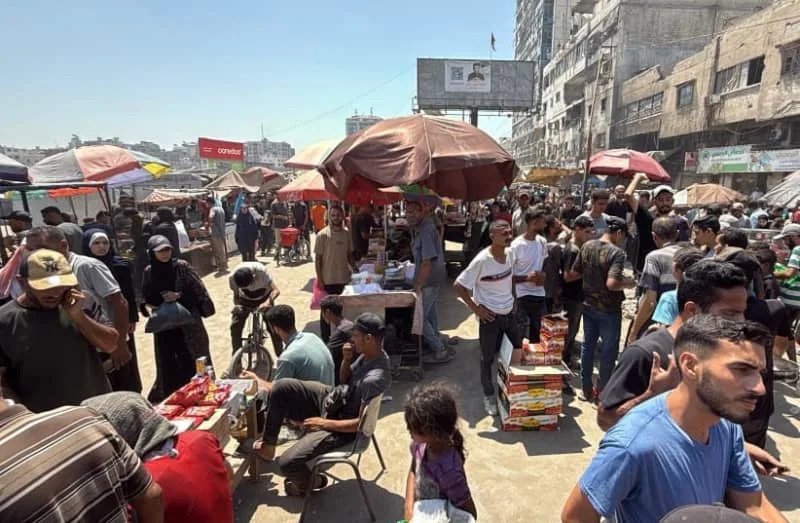Rafah, Egypt
—
For nearly two years, Egyptian truck drivers have braved the only land crossing into Gaza outside Israel to deliver vital aid, but long delays, Israeli rejections and harsh border conditions are testing their resolve to continue serving Palestinians in the war-torn enclave.
The drivers spend weeks parked near the Egyptian side of the Rafah crossing, awaiting approvals from Israeli authorities to transport aid into Gaza. Once approval is granted, they are made to undergo a process of inspections on both sides of the border that Egyptian aid workers say often lasts almost 18 hours.
Upon receiving approval from the Egyptian side, the drivers take their trucks into a zone designated for inspections by the Israeli military south of the border, at the nearby Kerem Shalom crossing between Israel and Gaza, where their supplies, pre-approved by the Israeli military, are x-rayed and then checked again in what workers say is an onerous process.
Medhat Mohamed, a truck driver transporting food like jam, honey, beans and hummus, said he was told to turn back by the Israeli military on Wednesday, after waiting for two weeks to enter the inspection process at the Egyptian border.
“I was asked, ‘Why do you have so much food? Who is this for?’ Or sometimes we get the most basic answer of: ‘Time’s up,’” Mohamed said.
Some of the drivers spend weeks on end without seeing family and say they’re missing out on potentially lucrative jobs in other parts of Egypt.
“We’ve been here for almost a week, we went in (to the Israeli inspection site) once before and then they told us turn around, we don’t know why… 150-200 trucks go in for inspections, but they only take 15-20 trucks. The rest is rejected,” said Mohamed al-Shaer, a truck driver.
Mahmoud al-Sheikh, another driver who has been delivering aid to Gaza since the start of the war nearly two years ago, described the process as “humiliating” for the truckers, and for the Palestinians who desperately need supplies.
“I’ve been (delivering aid) for two years. This is the most difficult time, more than one can imagine,” he said, referring to increased restrictions on deliveries.
Al-Sheikh described difficult living conditions at the border, with thousands of drivers parked in a nearby “sand pit” awaiting a green light to start moving the aid to the border.
A handful of bathroom stalls in a nearby mosque serve thousands of truck drivers, who must stay near their vehicles in case a sudden ceasefire allows aid to enter Gaza freely, the drivers told CNN. The two short-lived ceasefires Gaza saw since the war began were 13 months apart.
The pay is low. “We get paid 650 Egyptian pounds ($13) daily but we have to buy water to bathe and drink, buy ice to preserve food, expensive food to cook. Whatever is left is not enough to send back to our children,” al-Sheikh said.
Asked why he continues in this line of work, al-Sheikh said: “Because the people in Gaza are starving.”
Egyptian Foreign Minister Badr Abdelatty told CNN that 5,000 trucks carrying aid are waiting on the Egyptian side of the border to enter. COGAT, the Israeli military body that oversees access to Gaza, told CNN on Tuesday that it “does not prevent the entry of trucks from Egypt and facilitates their passage into Gaza without any quantitative restriction.”
Amal Emam, the head of the Egyptian Red Crescent, said on Monday that aid groups on the Egyptian side ensure they are meeting all the requirements placed by COGAT, but they often find that even items that are pre-approved by Israel are rejected, sometimes for apparently arbitrary reasons.
“For us, it’s trial and error,” Emam said.
She showed CNN hundreds of packages of aid piling up in an Egyptian warehouse near the Rafah crossing, including intensive care unit (ICU) beds, oxygen tanks, solar panels and generators. These, she said, were rejected by Israel several times during inspections at the border.
“The ICU beds were rejected four times because they have metal parts in them,” she told CNN’s Becky Anderson.
Responding to Emam’s claims to CNN, COGAT said on X Wednesday: “The beds arrived at the crossing stacked in a dangerously unstable way, making it impossible to unload them at the crossing, and putting the safety of crossing staff at risk.”
“The organization was therefore asked to properly repalletize the trucks, and once the cargo was securely restacked, the trucks entered Gaza yesterday.”
Emam said the package dimensions are properly measured, loaded on specific wooden pallets, digitally coded and manifested in coordination with Israel before the items are sent to the border for IDF inspections. Otherwise, any difference, no matter how small, will hinder aid access, she said. “Sometimes we don’t get an answer as to why they have been rejected.”
COGAT said that “trucks are denied entry only in cases involving attempts to smuggle prohibited goods, or if the truck driver has previously made multiple smuggling attempts and is therefore barred from arriving at the crossing.”

The process is costly and adds “unnecessary financial burden” to “pack, repack, add extra areas to store,” Emam said, adding that huge warehouses have been built in Egypt to store and preserve all the aid waiting to make its way into Gaza.
Striking images of starvation and extreme malnutrition after months of Israel’s blockade of Gaza triggered global protests last month. Protests targeted Egyptian embassies abroad as demonstrators accused the Egyptian government of complicity in the blocking of aid.
Egypt’s foreign minister organized a visit for news organizations to the Gaza border amid the mounting pressure, saying the burden lies with Israel, and that the Rafah border is open round the clock on the Egyptian side, but that the crossing remains closed on the Israeli-controlled side.
In a CNN report published last year, two dozen humanitarian workers and government officials working to deliver aid said a clear pattern of Israeli throttling of aid exists. COGAT imposes arbitrary and contradictory criteria, they said.
CNN also reviewed documents compiled by major participants in the humanitarian operation that list the items most frequently rejected by the Israelis, which include anesthetics and anesthesia machines, oxygen cylinders, ventilators and water filtration systems.
Despite the restrictions, Emam said, aid workers refuse to give up.
“If we stop doing this, who will do it?”








